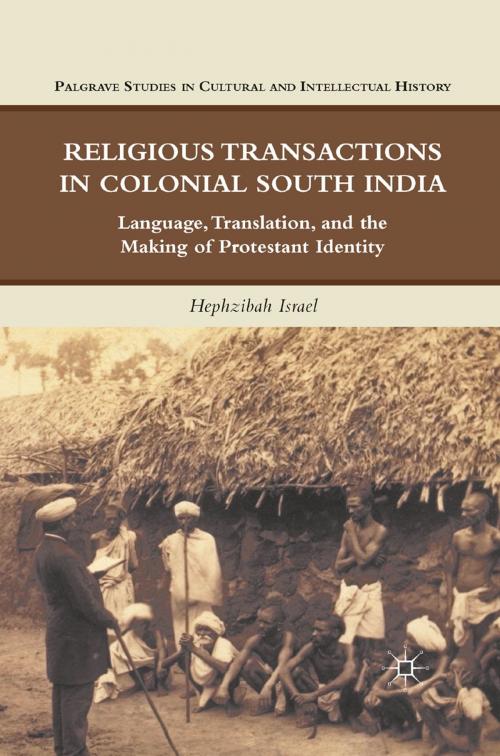Religious Transactions in Colonial South India
Language, Translation, and the Making of Protestant Identity
Nonfiction, History, Asian, Asia, Religion & Spirituality, Reference| Author: | H. Israel | ISBN: | 9780230120129 |
| Publisher: | Palgrave Macmillan US | Publication: | August 15, 2011 |
| Imprint: | Palgrave Macmillan | Language: | English |
| Author: | H. Israel |
| ISBN: | 9780230120129 |
| Publisher: | Palgrave Macmillan US |
| Publication: | August 15, 2011 |
| Imprint: | Palgrave Macmillan |
| Language: | English |
Religious Transactions in Colonial South India locates the "making" of Protestant identities in South India within several contesting discourses. It examines evolving attitudes to translation and translation practices in the Tamil literary and sacred landscapes initiated by early missionary translations of the Bible in Tamil. Situating the Tamil Bible firmly within intersecting religious, literary, and social contexts, Hephzibah Israel offers a fresh perspective on the translated Bible as an object of cultural transfer. She focuses on conflicts in three key areas of translation - locating a sacred lexicon, the politics of language registers and "standard versions," and competing generic categories - as discursive sites within which Protestant identities have been articulated by Tamils. By widening the cultural and historical framework of the Tamil Bible, this book is the first to analyze the links connecting language use, translation practices, and caste affiliations in the articulation of Protestant identities in India.
Religious Transactions in Colonial South India locates the "making" of Protestant identities in South India within several contesting discourses. It examines evolving attitudes to translation and translation practices in the Tamil literary and sacred landscapes initiated by early missionary translations of the Bible in Tamil. Situating the Tamil Bible firmly within intersecting religious, literary, and social contexts, Hephzibah Israel offers a fresh perspective on the translated Bible as an object of cultural transfer. She focuses on conflicts in three key areas of translation - locating a sacred lexicon, the politics of language registers and "standard versions," and competing generic categories - as discursive sites within which Protestant identities have been articulated by Tamils. By widening the cultural and historical framework of the Tamil Bible, this book is the first to analyze the links connecting language use, translation practices, and caste affiliations in the articulation of Protestant identities in India.















